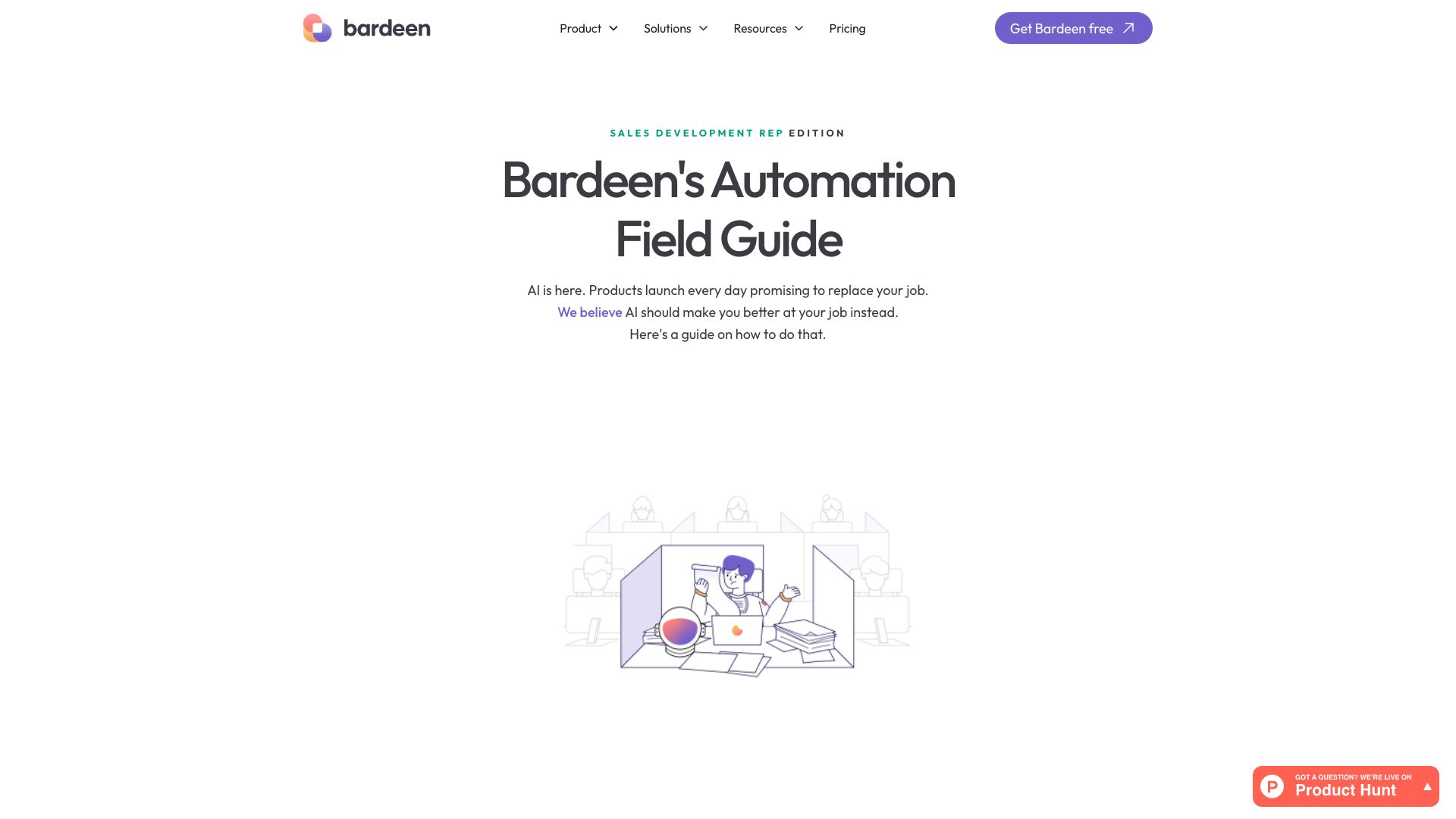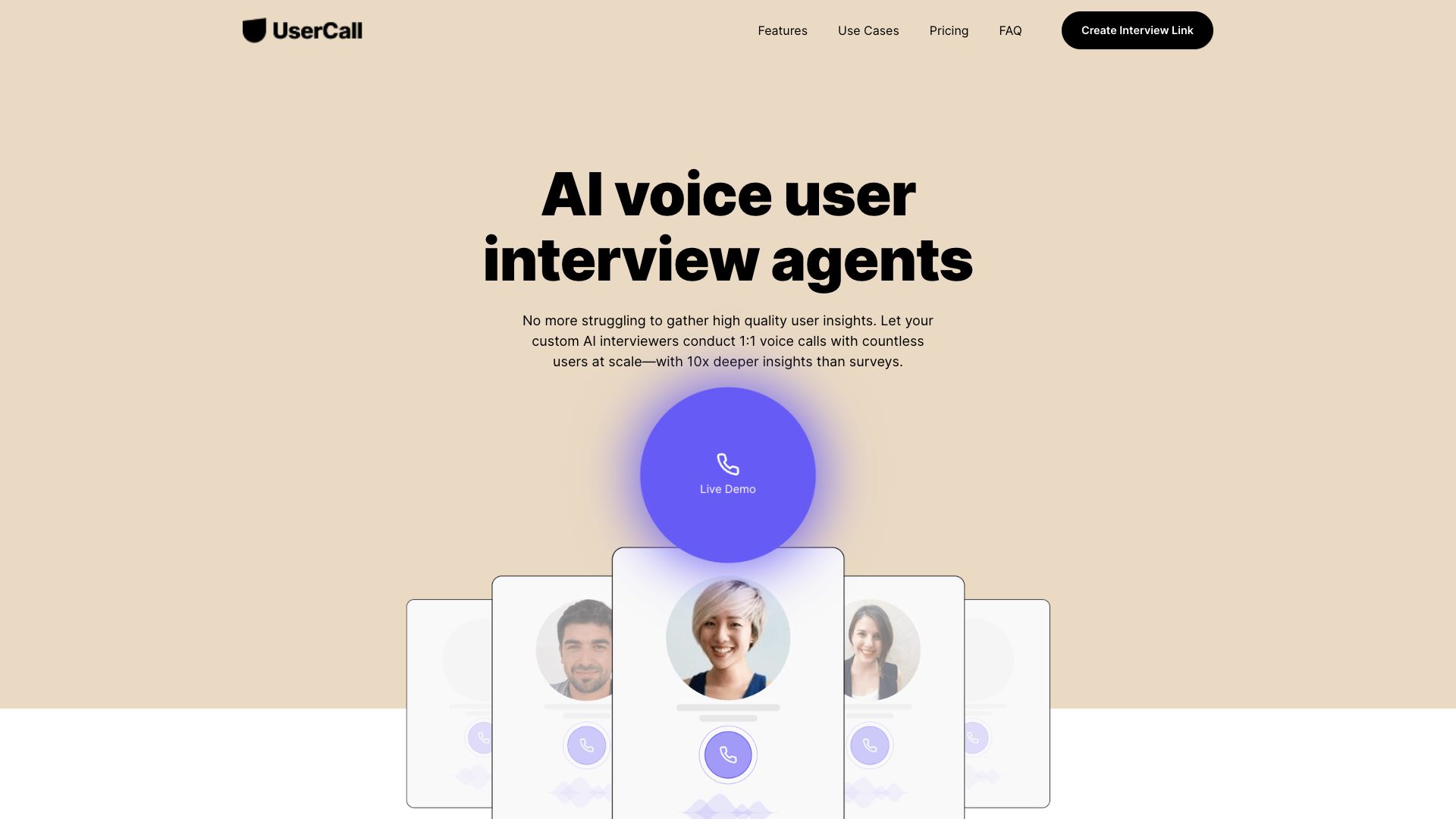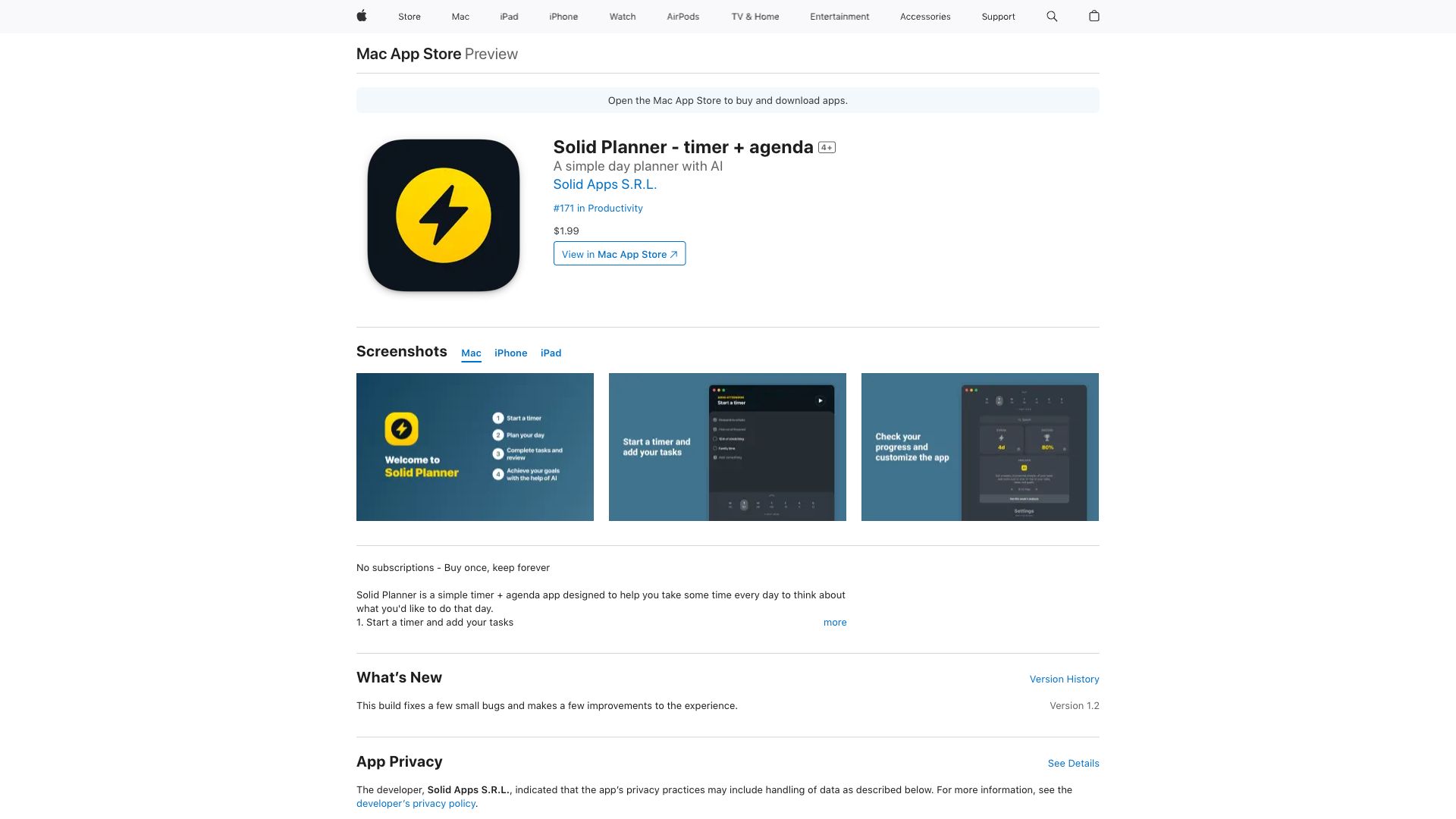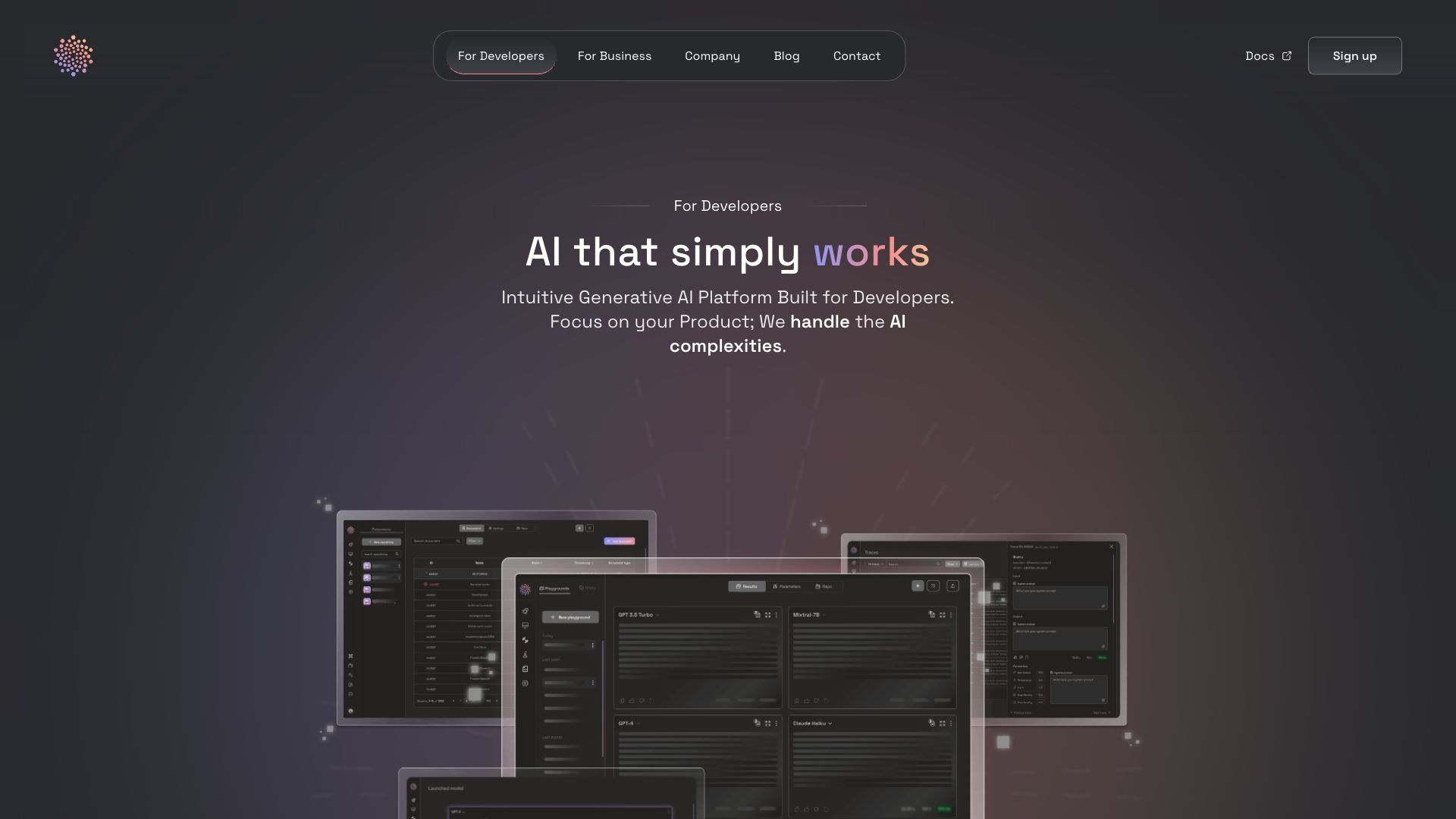Awesome AI Workflow Management Tools in 2024
Discover the awesome 6 AI tools for 2024 By Candytools
Oliv is the next-gen AI-powered sales assistant. Get help with automatic prospect research, live transcription, guided questions, CRM updates, and workflows while you focus on having conversations that close!
Bardeen's field guide for SDRs, with automation ideas throughout the whole process. From prospecting, to demo calls and closing, we've got you covered.
AI moderated voice user interviews
Read reviews, compare customer ratings, see screenshots, and learn more about Solid Planner - timer + agenda. Download Solid Planner - timer + agenda and enjoy it on your iPhone, iPad, iPod touch, or Mac OS X 13.0 or later.
Accelerating the advent of personalized LLMs.
Aitryon provides AI-powered intelligent automation solutions to streamline and optimize your business processes, improving efficiency and productivity.
More AI Tools Categories
What is AI Workflow Management?
AI Workflow Management: Orchestrating Intelligent Automation
AI Workflow Management refers to the process of designing, executing, monitoring, and optimizing workflows that incorporate Artificial Intelligence (AI) models and components. It's about seamlessly integrating intelligent automation into business processes to improve efficiency, accuracy, and decision-making.
Here's a breakdown of key aspects of AI Workflow Management:
1. Design and Orchestration:
- Defining AI Tasks: Identifying specific steps in the workflow where AI models can contribute value, such as data analysis, prediction, classification, or decision support.
- Data Pipelines: Establishing robust data flows to feed AI models with the necessary information and channel outputs to subsequent steps.
- Model Integration: Seamlessly incorporating pre-trained AI models or building custom models tailored to the workflow's specific needs.
- Workflow Automation: Automating the execution of tasks, data transfers, and model inferences, minimizing manual intervention and streamlining processes.
2. Execution and Monitoring:
- Resource Management: Efficiently allocating computing resources, managing model deployments, and ensuring optimal performance of AI components.
- Performance Tracking: Monitoring key metrics like model accuracy, processing time, and error rates to ensure the AI components are functioning as expected.
- Exception Handling: Implementing mechanisms to handle situations where AI models produce unexpected results or encounter errors, ensuring smooth workflow continuation.
3. Optimization and Improvement:
- Model Retraining: Regularly updating AI models with new data to maintain accuracy and adapt to evolving patterns.
- Workflow Refinement: Continuously analyzing workflow performance, identifying bottlenecks, and implementing adjustments to enhance efficiency and effectiveness.
- Human-in-the-loop: Incorporating human feedback and expertise to refine AI models and decision-making, ensuring optimal outcomes.
Benefits of AI Workflow Management:
- Increased Efficiency: Automating tasks and decisions using AI significantly speeds up processes and reduces manual effort.
- Improved Accuracy: AI models can often analyze data and make predictions with higher accuracy than humans, leading to better decisions.
- Enhanced Scalability: AI workflows can easily handle large volumes of data and complex tasks, scaling operations without significant increases in resources.
- Data-Driven Insights: AI components can uncover hidden patterns and insights from data, informing better business strategies.
Examples of AI Workflow Management in Action:
- Customer Service: AI chatbots handling initial inquiries, routing complex issues to human agents, and personalizing customer interactions.
- Financial Analysis: AI models analyzing market data, identifying investment opportunities, and automating risk assessments.
- Healthcare: AI-powered image analysis assisting doctors in diagnosing diseases, predicting patient outcomes, and personalizing treatment plans.
Tools and Platforms for AI Workflow Management:
Various tools and platforms support AI Workflow Management, including cloud-based machine learning platforms (AWS SageMaker, Google AI Platform), workflow automation tools, and specialized AI orchestration platforms.
AI Workflow Management is transforming how businesses operate, enabling them to harness the power of AI for intelligent automation, data-driven insights, and continuous improvement. As AI technology advances, we can expect even more sophisticated and impactful applications of AI within workflows across diverse industries.





